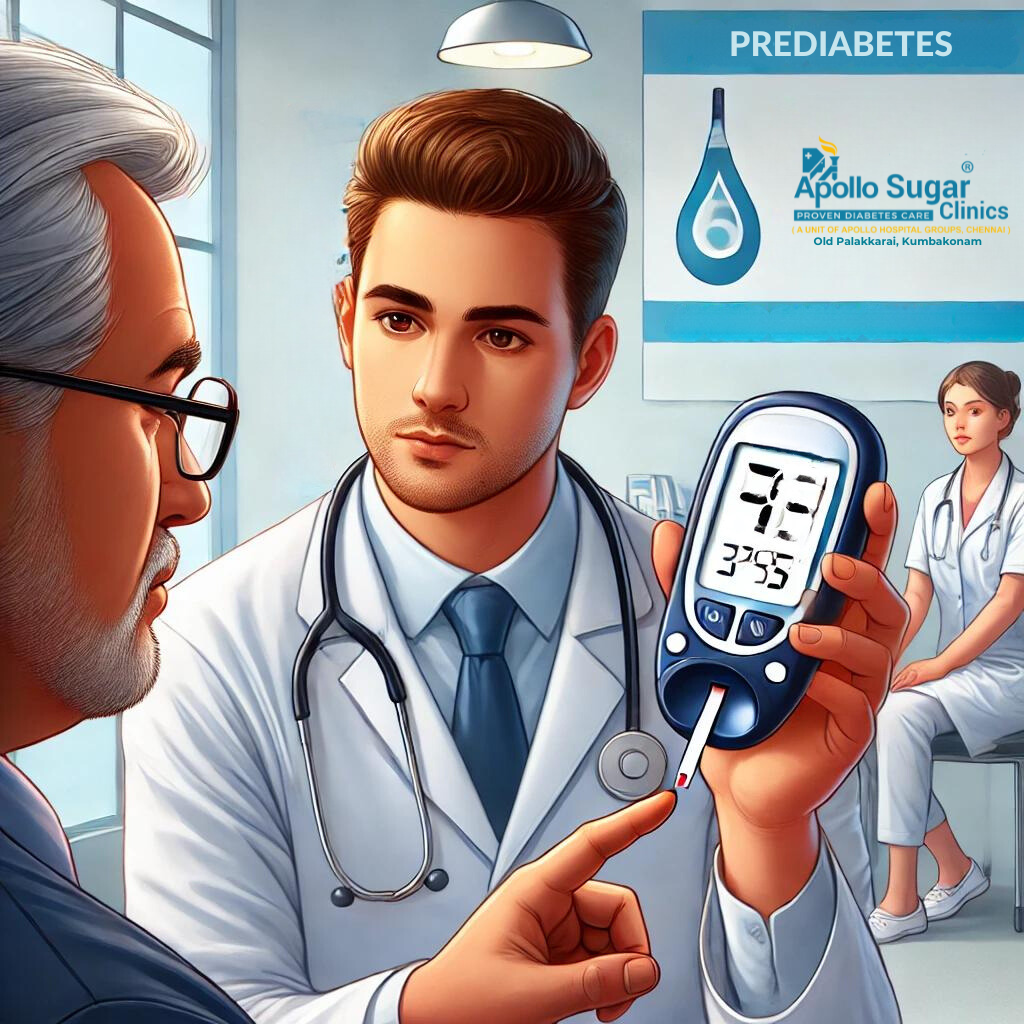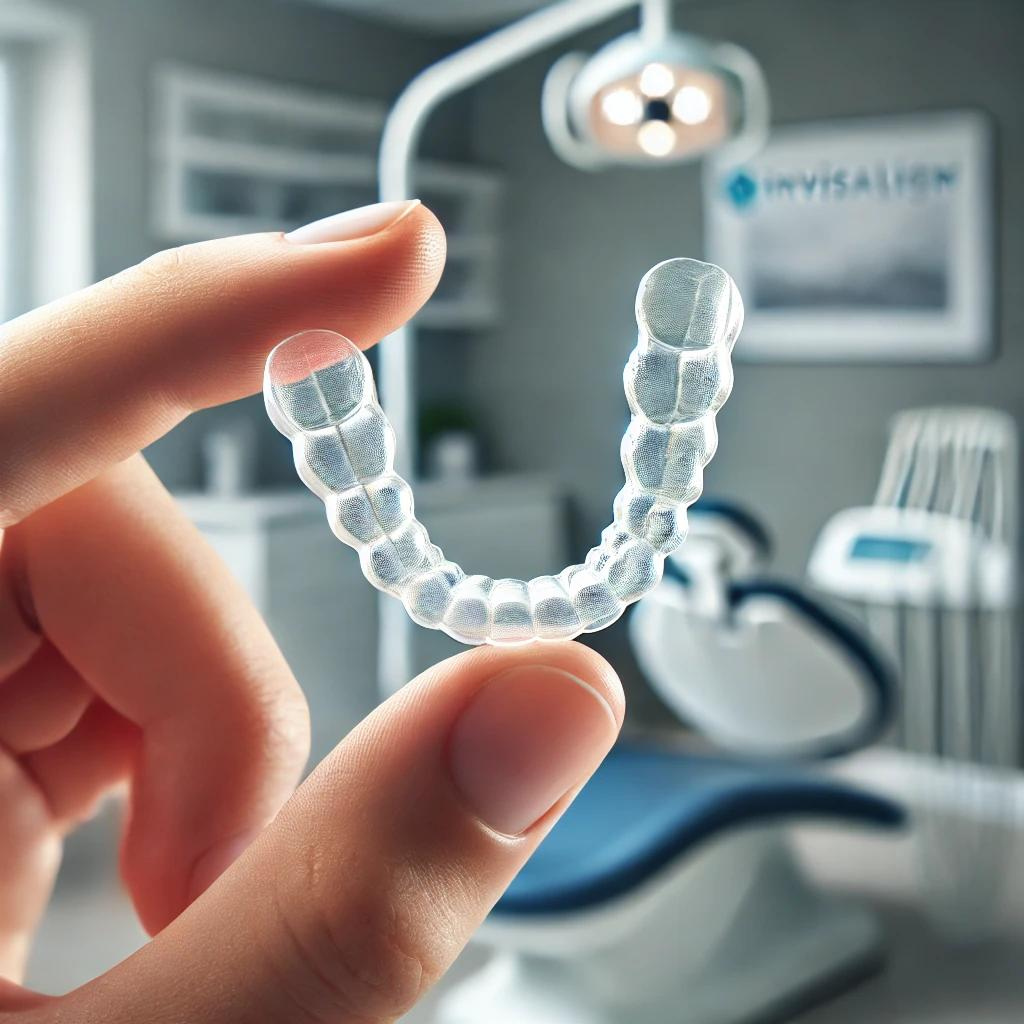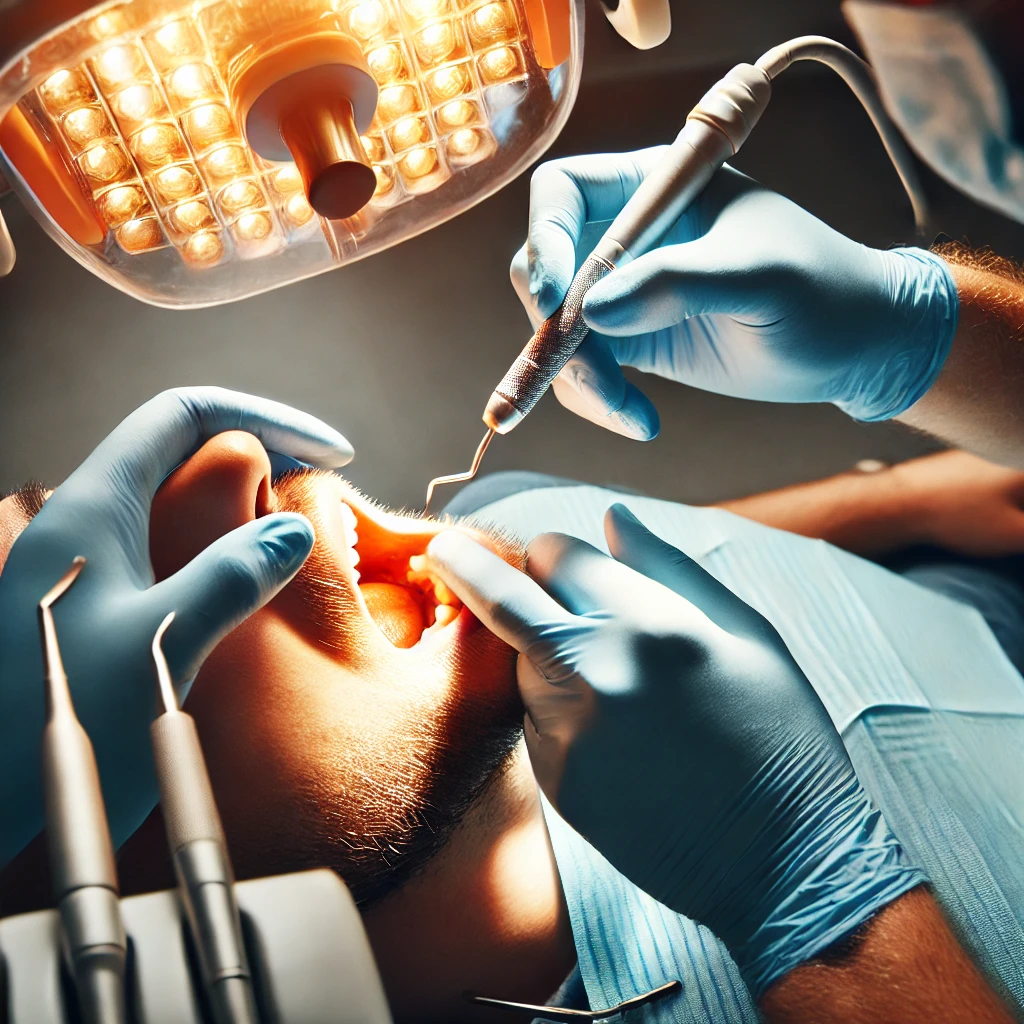Prediabetes Symptoms
Prediabetes Symptoms Understanding Prediabetes Symptoms: Early Detection and Management at Apollo Sugar Clinics, Kumbakonam Introduction Are you or a loved one concerned about the risk of prediabetes in Kumbakonam? Prediabetes is a condition that, if not addressed early, can lead to type 2 diabetes and other complications. At Apollo Sugar Clinics, Kumbakonam, we specialize in diagnosing, treating, and managing prediabetes to help you lead a healthy, balanced life. Identifying the early signs of prediabetes is the first step toward preventing diabetes and ensuring long-term health. Understanding Prediabetes What Is Prediabetes? Prediabetes occurs when blood sugar levels are higher than normal but not high enough to be diagnosed as type 2 diabetes. It is a warning sign that the body is starting to have trouble regulating glucose. Many people with prediabetes do not experience noticeable symptoms, making regular screenings essential, especially for individuals at risk. If left unmanaged, prediabetes can progress to type 2 diabetes, which can cause complications such as heart disease, nerve damage, and kidney issues. Symptoms of Prediabetes While prediabetes often goes unnoticed due to subtle or absent symptoms, there are signs that can indicate your blood sugar levels are rising: Increased Thirst: Constantly feeling thirsty, even after drinking water, could be a sign of elevated blood sugar levels. Frequent Urination: High blood sugar can lead to increased urine production, causing you to visit the bathroom more often, especially at night. Fatigue: Persistent fatigue or tiredness, even after adequate rest, can be linked to fluctuating blood sugar levels. Blurred Vision: High blood sugar can affect the eyes, leading to blurred vision, an early indicator of prediabetes. Slow-Healing Wounds: If cuts or bruises take longer than usual to heal, it may be due to impaired blood circulation caused by rising glucose levels. Prediabetes Treatments Immediate Treatments If you recognize the symptoms of prediabetes, immediate lifestyle changes and medical interventions can help manage the condition and prevent the progression to type 2 diabetes. Some of the key treatments include: Dietary Changes: Focus on a balanced, low-carb diet rich in vegetables, fruits, lean proteins, and whole grains. Reducing sugar intake is essential. Increased Physical Activity: Regular exercise, such as walking, cycling, or swimming, helps lower blood sugar levels and improves insulin sensitivity. Long-Term Management Managing prediabetes in the long term involves continuous monitoring and commitment to healthier habits. Here’s how you can maintain healthy blood sugar levels: Weight Management: Losing even a small amount of weight (5-7% of your body weight) can significantly reduce your risk of developing diabetes. Regular Health Check-ups: Regular blood sugar testing and consultations with healthcare providers are crucial for tracking your progress and adjusting your treatment plan. Stress Management: Chronic stress can contribute to increased blood sugar levels. Incorporating stress-reduction techniques such as yoga, meditation, and breathing exercises can be beneficial. Our Approach to Prediabetes Treatment in Kumbakonam Comprehensive Assessment At Apollo Sugar Clinics in Kumbakonam, our experienced healthcare professionals provide a detailed assessment, which includes reviewing your medical history, conducting blood sugar tests, and identifying risk factors such as family history, weight, and lifestyle habits. Personalized Treatment Plan Based on the assessment, we create a personalized treatment plan that is designed to lower your blood sugar levels and prevent the progression to type 2 diabetes. This plan may include dietary recommendations, exercise programs, medication if necessary, and regular monitoring of your blood sugar levels. Ongoing Support and Monitoring We are committed to your long-term health. With continuous support and regular follow-ups, we monitor your progress, provide guidance on lifestyle changes, and adjust your treatment plan as needed. Our focus is on preventing diabetes through effective prediabetes management. Why Choose Apollo Sugar Clinics in Kumbakonam? Expertise in Diabetes Care: Our team of healthcare professionals specializes in diabetes prevention and management, ensuring that you receive high-quality care. Patient-Centered Care: We understand that every individual is unique. Our treatment plans are tailored to meet your specific health needs and goals. Advanced Diagnostic Tools: We use cutting-edge technology to accurately diagnose and monitor prediabetes, enabling timely intervention and treatment. Comprehensive Services: In addition to prediabetes management, we offer a wide range of diabetes-related services, including nutrition counseling, diabetes education, and lifestyle coaching. BOOK YOUR APPOINTMENT TODAY! If you or a loved one is experiencing symptoms of prediabetes, don’t wait until it progresses further. Schedule a consultation with us at Apollo Sugar Clinics, Kumbakonam, and let our dedicated team guide you toward a healthier future. Early detection and lifestyle changes can make all the difference in preventing type 2 diabetes. F.A.Q 1. What is prediabetes? Prediabetes is a condition where blood sugar levels are higher than normal but not high enough to be classified as type 2 diabetes. It serves as a warning sign that you’re at risk of developing diabetes. 2. What are the common symptoms of prediabetes? Prediabetes often has no noticeable symptoms, but some early signs include increased thirst, frequent urination, fatigue, blurred vision, and slow-healing wounds. 3. Who is at risk for prediabetes? People who are overweight, have a family history of diabetes, lead a sedentary lifestyle, are over 45 years old, or have high blood pressure or cholesterol are at higher risk. 4. Can prediabetes be reversed? Yes, with lifestyle changes such as a healthy diet, regular exercise, and weight loss, prediabetes can often be reversed, preventing the progression to type 2 diabetes. 5. What tests are used to diagnose prediabetes? Common tests include the fasting blood sugar test, oral glucose tolerance test (OGTT), and hemoglobin A1c test, which measure blood sugar levels over time. 6. How is prediabetes treated at Apollo Sugar Clinics, Kumbakonam? We provide personalized treatment plans that include dietary counseling, exercise recommendations, regular monitoring, and, if needed, medication to manage blood sugar levels.










